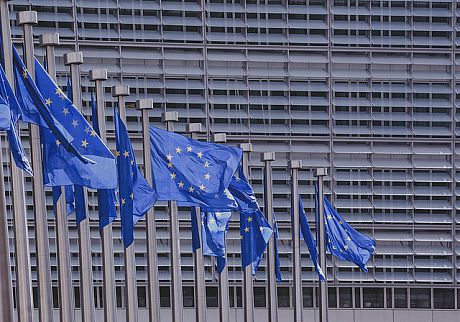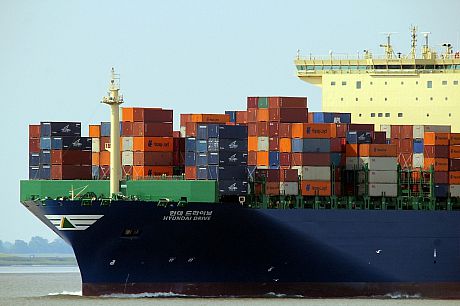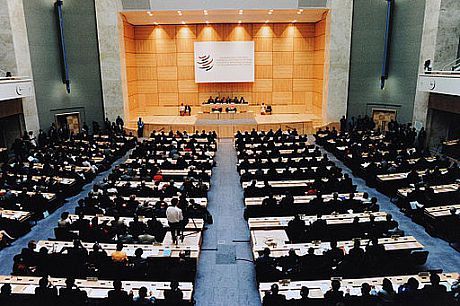Professor L. Alan Winters, Professor Jim Rollo and Dr Peter Holmes are all members of UKTPO
Liam Fox MP, the President of the Board of Trade, is reported as saying that the UK should leave the EU Customs Union so as to give it the freedom to negotiate Free Trade Areas (FTAs) with other countries.
This would be an unexceptionable step after full Brexit but a provocative, and very probably costly, one before Brexit.

‘Leaving the Customs Union before full Brexit would violate the Treaties underpinning the EU and very likely incur sanctions.’
It is very unlikely that the UK would choose to remain within the EU’s customs union after Brexit: Turkey is the only major country to have such status at present and it does not have a very attractive trade deal with the EU.
Leaving the Customs Union before full Brexit, on the other hand, would violate the Treaties underpinning the EU, very likely incur sanctions, engender considerable hostility among our partners and sour relations for negotiating the UK’s post-Brexit arrangements.
A customs union is a trade bloc in which there are no tariff barriers at all among the member states and a common external tariff against the rest of the world.
There is no need to have customs barriers between partners because the tariff on any good is the same wherever a good enters the bloc. By contrast, members of an FTA agree not to put tariffs on goods originating in other members but have complete freedom to set their own tariffs with the rest of the world, which includes signing other FTAs.
Because external tariffs vary by member, there is a danger that imports from third countries enter the bloc via the member with the lowest tariff and then flow to other members, thus evading the latter’s tariffs.
To avoid this you need customs formalities between members and rules of origin to define what has been produced in the member countries of the FTA and what is essentially an import into the bloc from outside. These are costly and slow down trade. The EU has an FTA with, say, Norway, but a customs union agreement with Turkey.

Leaving the Customs Union would aggravate the EU’s 27 member states and make negotiating a post-Brexit deal with them vastly more complex.”
Could the UK leave the EU Customs Union while still in EU? Not without breaking Treaty commitments, facing tariffs on its exports to other members and possibly incurring other sanctions.
Most importantly, leaving the Customs Union would aggravate the EU’s 27 member states and make negotiating a post-Brexit deal with them vastly more complex.
We would expect the UK would leave the Customs Union upon Brexit. Only Turkey has a customs union agreement with EU (apart from statelets like Monaco and Andorra). This means that Turkey has to impose exactly the same tariffs as the EU does on any imports from outside the bloc. That is, it essentially has to have exactly the same set of FTAs as does the EU. Such an arrangement would leave the UK with no sovereignty over its trade agreements at all.
Also a customs union with the EU does not offer full Single Market access. A customs union alone would remove tariffs on UK-EU trade, but not regulatory barriers, so unless it was accompanied by regulatory harmonisation, the UK would still have to prove that its goods met EU standards etc.
All other preferential relationships that we might negotiate with the EU are Free Trade Agreements, which would give the UK control of its external trade policy including the right to sign other FTAs. But they would all imply having customs posts between the UK and the EU in order to check that the products claiming exemption from tariffs were actually produced in the EU-UK FTA.
The default or safety net option if all customs union or FTA arrangements are rejected is for no preferential arrangement and for the EU’s 27 member states and UK to trade just as a pair of WTO members with no preferences.

World Trade Organisation. Photo courtesy of the WTO (CC BY-SA 2.0)
To summarise, leaving the Customs Union before the Article 50 process is finished would be politically and economically costly: the EU would certainly react. But leaving after the Article 50 process is finished would be entirely natural if the UK thought the ability to negotiate its own FTAs with other countries outweighed the extra costs of customs formalities with the EU.
Disclaimer: The opinions expressed in this blog are those of the author alone and do not necessarily represent the opinions of the University of Sussex or UK Trade Policy Observatory.
Republishing guidelines
The UK Trade Policy Observatory believes in the free flow of information and encourages readers to cite our materials, providing due acknowledgement. For online use, this should be a link to he original resource on the our website. We do not however, publish under a Creative Commons license. This means you CANNOT republish our articles online or in print for free.